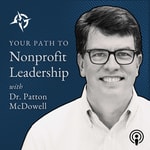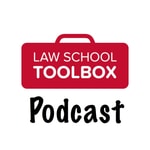A Socialist Reads Atlas Shrugged – Details, episodes & analysis
Podcast details
Technical and general information from the podcast's RSS feed.

A Socialist Reads Atlas Shrugged
Jonathan Seyfried
Frequency: 1 episode/11d. Total Eps: 45

Recent rankings
Latest chart positions across Apple Podcasts and Spotify rankings.
Apple Podcasts
🇬🇧 Great Britain - philosophy
19/07/2025#59🇬🇧 Great Britain - philosophy
08/07/2025#82🇨🇦 Canada - philosophy
25/02/2025#84🇬🇧 Great Britain - philosophy
11/02/2025#84🇨🇦 Canada - philosophy
24/11/2024#73🇬🇧 Great Britain - philosophy
22/10/2024#88
Spotify
No recent rankings available
Shared links between episodes and podcasts
Links found in episode descriptions and other podcasts that share them.
See all- https://brenebrown.com/
436 shares
- https://www.jonathanseyfried.art/
44 shares
RSS feed quality and score
Technical evaluation of the podcast's RSS feed quality and structure.
See allScore global : 62%
Publication history
Monthly episode publishing history over the past years.
E45 - Farewell...For Now
Season 1 · Episode 45
dimanche 11 juin 2023 • Duration 44:14
In this final episode, Jonathan discusses recent life changes that led to the break in episodes. Alas, this will be the last episode for a long while. Thank you to all the listeners who have corresponded and shared their experiences with the podcast. That has been a true joy.
Jonathan is starting a History graduate program and won't have time to continue the podcast. Before signing off, Jonathan reflects on Ayn Rand's ideas in American culture in June 2023, as reflected in the funeral episode of HBO's series, Succession. Have Ayn Rand's theories finally been cast into the dustbin of history? Over the coming years, we'll see...
Jonathan will keep the email address for the show active and will have time to correspond with listeners of these episodes, even though the project remains incomplete. The email address is: socialistreads@gmail.com
E44 - Stinging Jets
Season 1 · Episode 44
vendredi 9 décembre 2022 • Duration 43:16
In this episode, Jonathan explores Hank Reardon's perception that business enterprise is a "shameful cult." This involves a larger discussion of the value of work and the psychological toll of living with people who have different values. Jonathan mentions the book Callings as an example of how work can hold larger value.
My five themes to explore in this podcast's close read of Atlas Shrugged are:
- What is human nature?
- Straw-man arguments and their impact on the world Ayn Rand creates.
- Dagny Taggart as a true hero.
- How empathy can be de-legitimized.
- What is Capitalism and what is wrong with it?
Questions or comments? Email me at: socialistreads@gmail.com
Learn more about Jonathan Seyfried at their website, https://jonathanseyfried.art
If you'd like to support my creative work, please visit my Patreon page. (http://patreon.com/jonathanseyfried)
The intro/outro music was composed by John Sib.
The podcast theme image was created by Karina Bia
E35 - Play It Open
Season 1 · Episode 35
vendredi 12 août 2022 • Duration 45:36
In this episode, Jonathan reaches the end of Chapter 4. In these last two scenes, Dagny interacts with two characters who share her "sense of life" and value system. The scene with Ellis Wyatt highlights the struggle of someone who has pride in their work but works in a broken system. Ellis Wyatt expresses particular disdain for those who feed off the carcasses of producers and Jonathan draws an analogy to the leeching behavior depicted in the TV show Silicon Valley.
In the next scene, Hank Rearden tells Dagny that he likes that she "plays it open." Jonathan explores the question of boundaries when establishing trust in business interactions. On the one hand, you don't want to be deceptive, but on the other hand, you don't want to overshare. How do you strike a balance?
Lastly, the chapter ends with Hank expressing concern about the immorality of materialism. Dagny asserts that it's not immoral to be proud of a hard-won accomplishment. Jonathan suggests that there is a spiritual dimension to accomplishment and that it's not entirely reducible to materialism.
My five themes to explore in this podcast's close read of Atlas Shrugged are:
- What is human nature?
- Straw-man arguments and their impact on the world Ayn Rand creates.
- Dagny Taggart as a true hero.
- How empathy can be de-legitimized.
- What is Capitalism and what is wrong with it?
Questions or comments? Email me at: socialistreads@gmail.com
Learn more about Jonathan Seyfried at their website, https://jonathanseyfried.art
If you'd like to support my creative work, please visit my Patreon page. (http://patreon.com/jonathanseyfried)
The intro/outro music was composed by John Sib.
The podcast theme image was created by Karina Bia
E34 - Dan Conway
Season 1 · Episode 34
vendredi 5 août 2022 • Duration 45:52
Jonathan first discusses the short scene between Dagny and James. The "secret" that Dagny detects in James Taggart's smile is probably the short-term advantage possessed by those who are willing to use brute force or political maneuvering to achieve their goal.
In the scene between Dagny and Dan Conway, we meet another "man's man" who built a successful enterprise in a rags-to-riches fashion. For the first time in the book, college education gets mentioned with disdain in a way that can be connected to the disdain of elite technocrats in the political culture of the USA in the early 21st century. To illustrate the tension between technocratic and grassroots viewpoints, Jonathan mentions the Indian farmers' protests of 2020-2021.
Jonathan then compares Dan Conway's decision to the Crito Dialogue by Plato.
Dan Conway expresses faith in democracy, but there are severe flaws with pure democracy. James Madison offers the most classic explanation of the problems with pure democracy in Federalist Paper 10.
My five themes to explore in this podcast's close read of Atlas Shrugged are:
- What is human nature?
- Straw-man arguments and their impact on the world Ayn Rand creates.
- Dagny Taggart as a true hero.
- How empathy can be de-legitimized.
- What is Capitalism and what is wrong with it?
Questions or comments? Email me at: socialistreads@gmail.com
Learn more about Jonathan Seyfried at their website, https://jonathanseyfried.art
If you'd like to support my creative work, please visit my Patreon page. (http://patreon.com/jonathanseyfried)
The intro/outro music was composed by John Sib.
The podcast theme image was created by Karina Bial
E33 - The Anti-Dog-Eat-Dog Rule
Season 1 · Episode 33
samedi 30 juillet 2022 • Duration 37:22
This episode focuses on the vexing problem of setting rules for competition in marketplaces and profit-making. The government's function is to set the rules of the game and enforce them.
In Atlas Shrugged, the National Railroad Association conducts illegal collusion, but Ayn Rand makes it seem like this behavior is something that firms could easily get away with in the real world. On the contrary, in the real world, it is not so easy to illegally collude. During this discussion, Jonathan mentions some trade associations that funded ad campaigns (for milk and for cotton).
Jonathan explores the question: could there be a realistic scenario in which something like the Anti-Dog-Eat-Dog Rule could emerge within a society with a strong rule of law? (The video game Bioshock takes place in a world that has already wholly converted to the ideals presented in Atlas Shrugged.)
Jonathan then connects the topic of blight to the economic question of meeting consumer demand. Instead of reducing each economic situation to the dichotomy of public versus private, think about what the best method is to meet the consumer demand for a particular good or service. For more information about "destructive competition" carried out by the Standard Oil Company, see the Supreme Court case Standard Oil Co. of New Jersey v. United States (1911).
A point of agreement that Jonathan sees in this scene is the critique of the power of what Ayn Rand calls "pull" -- when decisions get made based on who your friends are, instead of evidence or merit.
Next episode, Jonathan will refer to the Crito dialogue by Plato.
Whoops! In the end, Jonathan accidentally refers to this episode as 32, but, really, this has been and will always be Episode 33.
My five themes to explore in this podcast's close read of Atlas Shrugged are:
- What is human nature?
- Straw-man arguments and their impact on the world Ayn Rand creates.
- Dagny Taggart as a true hero.
- How empathy can be de-legitimized.
- What is Capitalism and what is wrong with it?
Questions or comments? Email me at: socialistreads@gmail.com
Learn more about Jonathan Seyfried at their website, https://jonathanseyfried.art
If you'd like to support my creative work, please visit my Patreon page. (http://patreon.com/jonathanseyfried)
The intro/outro music was composed by John Sib.
The podcast theme image was created by Karina Bial
E32 - Nationalization
Season 1 · Episode 32
jeudi 28 juillet 2022 • Duration 47:47
File this one under the theme: what is Capitalism and what is wrong with it?
Jonathan provides a lengthy history-infused explanation of nationalization (when a government takes over an industry or a particular firm within an industry). The historical journey features Mexico's nationalization of its petroleum industry and the US Department of State's webpage. Jonathan mentions the Takings Clause in the 5th Amendment of the US Constitution and the Supreme Court case Kelo v. New London. Eminent Domain is covered in Article 27 of the Constitution of Los Estados Unidos Mexicanos. A very highly recommended book on public enterprise (including nationalization and privatization) is Our Common Wealth: The Return of Public Ownership in the United States by Thomas M. Hanna. Jonathan reads a passage about Amtrak on page 32 of Hanna's book. Also, the information about electricity municipalization in Boulder, Colorado, described at the start of the episode, was drawn from Hanna's book.
My five themes to explore in this podcast's close read of Atlas Shrugged are:
- What is human nature?
- Straw-man arguments and their impact on the world Ayn Rand creates.
- Dagny Taggart as a true hero.
- How empathy can be de-legitimized.
- What is Capitalism and what is wrong with it?
Questions or comments? Email me at: socialistreads@gmail.com
Learn more about Jonathan Seyfried at their website, https://jonathanseyfried.art
If you'd like to support my creative work, please visit my Patreon page. (http://patreon.com/jonathanseyfried)
The intro/outro music was composed by John Sib.
The podcast theme image was created by Karina Bial
E31 - Betty Pope and Ayn Rand's Feminism
Season 1 · Episode 31
vendredi 22 juillet 2022 • Duration 34:14
I thought that I could cover both the gender discussion and nationalization in about 45 minutes, but that did not happen. So, this week, we get into gender with the scene between James Taggart and Betty Pope. The next episode (#32) will discuss nationalization.
Jonathan's understanding of contemporary gender theory and research is grounded in the text Gender: Ideas, Interactions, Institutions by Lisa Wade and Myra Marx Ferree.
In the discussion about gender and politics, Jonathan mentions Margaret Thatcher and Julia Gillard (see her famous speech). A fictional figure, Claire Underwood, demonstrates some of the "self-immolation" that Jonathan thinks Ayn Rand had in mind when she wrote her essay (in this book) about not wanting a woman to be president.
My five themes to explore in this podcast's close read of Atlas Shrugged are:
- What is human nature?
- Straw-man arguments and their impact on the world Ayn Rand creates.
- Dagny Taggart as a true hero.
- How empathy can be de-legitimized.
- What is Capitalism and what is wrong with it?
Questions or comments? Email me at: socialistreads@gmail.com
Learn more about Jonathan Seyfried at their website, https://jonathanseyfried.art
If you'd like to support my creative work, please visit my Patreon page. (http://patreon.com/jonathanseyfried)
The intro/outro music was composed by John Sib.
The podcast theme image was created by Karina Bial
E30 - >>Fast Forward>> Part 3 of Francisco d'Anconia's Money Speech
Season 1 · Episode 30
vendredi 15 juillet 2022 • Duration 02:11:52
For the 30th episode, Jonathan "fast forwards" to Part 2, Chapter 2 in order to discuss one of the most quoted sections of Atlas Shrugged, Francisco d'Anconia's Money Speech. The gist of the speech is that d'Anconia (and Rand) claims that money is not the root of evil, but the root of all good. In this longer episode, Jonathan delves into the logic Rand uses to support this claim and examines several underlying assumptions. This is the last of the three fast forward episodes on Francisco d'Anconia's Money Speech.
For the video produced by the Bank of England about credit predating barter, click here. I first heard about this from David Graeber, in his book Debt: The First 5,000 Years.
For an excellent discussion of the gold standard, see this debate produced by Marginal Revolution University, an initiative of George Mason University. You might also be curious to see this recent post by Stephanie Kelton, a chief proponent of Modern Monetary Theory, which criticizes conventional wisdom about inflation in 2022.
Jonathan highly recommends Francis Fukuyama's books on the rule of law: The Origins of Political Order and Political Order and Political Decay.
Some examples of sophisticated market economies, very much active in "making money," prior to 1500 C.E.: China and especially the Song Dynasty, the economic history of Japan, Italian city-states especially with the economic activity funded by the Medici Bank, and Kenn Hirth's book The Aztec economic world: merchants and markets in ancient Mesoamerica.
To read more about Ricardo Semler's institution of workplace democracy at his large corporation in Brazil, read his book: Maverick.
Jonathan mentions millenarianism and almost avoids pronouncing it as millionairism.
Thanks for bearing with me on the LONG journey of this episode! The next fast forward episode will begin a discussion of the story of the 20th Century Motor Company in Chapter 10 of Part 2 (click here for the text of this passage).
Questions or comments? Email me at: socialistreads@gmail.com
Learn more about Jonathan Seyfried at their website, https://jonathanseyfried.art
If you'd like to support my creative work, please visit my Patreon page. Also, merch is available from my store on Big Cartel.
The intro/outro music was composed by John Sib.
The podcast theme image was created by
E29 - Phaethon Succeeded
Season 1 · Episode 29
vendredi 8 juillet 2022 • Duration 43:46
This episode begins by delving into aesthetics with an exploration of the question: what makes great art great? Dagny returns to her apartment and listens to the music of Richard Halley. Jonathan analyzes the description of Halley's Fourth Concerto and explores the idea that the experience of pain is worse for those who see no purpose in it. Jonathan mentions the philosopher Viktor Frankl as a philosopher who writes on the purpose of suffering (especially in his book Man's Search for Meaning). The biography of Richard Halley engages with the trope of the tortured artist and Rand ends up harshly critiquing that trope. Jonathan makes an analogy between the Greek myth of Phaethon and the teenager who wrecks their dad's car. On the question of changing trends and shifting tastes in art, Jonathan compares the experience of Richard Halley to the way that Shakespeare varied in popularity over the centuries. The intrusion of the headline about Francisco d'Anconia is presented as a violation of the ethos of Halley's Fourth Concerto.
My five themes to explore in this podcast's close read of Atlas Shrugged are:
- What is human nature?
- Straw-man arguments and their impact on the world Ayn Rand creates.
- Dagny Taggart as a true hero.
- How empathy can be de-legitimized.
- What is Capitalism and what is wrong with it?
Questions or comments? Email me at: socialistreads@gmail.com
Learn more about Jonathan Seyfried at their website, https://jonathanseyfried.art
If you'd like to support my creative work, please visit my Patreon page. (http://patreon.com/jonathanseyfried)
The intro/outro music was composed by John Sib.
The podcast theme image was created by Karina Bial
E28 - Motive Power
Season 1 · Episode 28
vendredi 1 juillet 2022 • Duration 44:49
Jonathan begins this episode with a review of a recent book on economic systems: Is Capitalism Obsolete?: a Journey Through Alternative Economic Systems by Giacomo Corneo. This episode kicks off the discussion of Chapter 4 of Part 1. The title of the chapter, The Immovable Movers, carries allusions to Ancient Greek philosophical traditions connected to the creation of the cosmos. Jonathan explains some of the connections to Aristotle, Parmenides, and Thomas Aquinas. Following that, Jonathan explores the question of achievement and symbiosis as they relate to human nature. The first paragraph of the chapter brings up questions about the definition of motivation. When we see Dagny's frustration with the New Jersey locomotive company, we have to wonder how much of the interpersonal problem is rooted in face-saving and how much of the problem is rooted in a lack of empathy. After discussing MacNamara's disappearance, Jonathan analyzes Dagny's moment of despair as it relates to the theme of motion. As Dagny walks along the city street, she sees a book advertisement that has a simplistic attack on "a businessman's greed." Jonathan presents some context for the word greed in American culture by referencing the movie Wall Street and the character Gordon Gecko. Dagny's last view on the street captures Rand's critique of a leisure culture that thrives on personal sadness.
My five themes to explore in this podcast's close read of Atlas Shrugged are:
- What is human nature?
- Straw-man arguments and their impact on the world Ayn Rand creates.
- Dagny Taggart as a true hero.
- How empathy can be de-legitimized.
- What is Capitalism and what is wrong with it?
Questions or comments? Email me at: socialistreads@gmail.com
Learn more about Jonathan Seyfried at their website, https://jonathanseyfried.art
If you'd like to support my creative work, please visit my Patreon page. (http://patreon.com/jonathanseyfried)
The intro/outro music was composed by John Sib.
The podcast theme image was created by Karina Bial.









